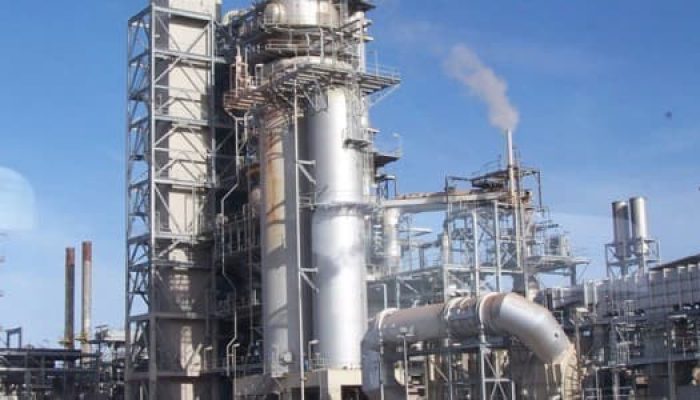Nigeria, a nation rich in oil yet paradoxically reliant on fuel imports, is poised for a transformative shift. At the heart of this change is Aliko Dangote, Africa’s wealthiest man and a global business magnate. Nigeria, a nation rich in oil yet paradoxically reliant on fuel imports, is poised for a transformative shift. At the heart of this change is Aliko Dangote, Africa’s wealthiest man and a global business magnate. His $20 billion Dangote Refinery, inaugurated in May 2023, is a monumental effort to tackle the inefficiencies and corruption plaguing Nigeria’s oil sector. Often referred to as the “oil mafia,” entrenched interests have long exploited the nation’s dependence on refined fuel imports, leaving its citizens burdened by fuel shortages and high costs. Dangote’s refinery could be a game-changer, but it also sets the stage for an intense battle between reformist ambitions.
Nigeria is Africa’s largest crude oil producer, with vast reserves that place it among the top 10 oil-rich nations globally. Yet, despite this wealth, the country has paradoxically remained one of the world’s largest importers of refined petroleum products. This is primarily due to the dysfunction of Nigeria’s state-owned refineries, which have operated at minimal capacity for decades.
Successive governments have attempted to address this issue, with little success. Corruption, mismanagement, and sabotage have ensured that efforts to rehabilitate the state-owned Nigerian National Petroleum Corporation (NNPC) refineries failed repeatedly. This inefficiency has birthed an informal “oil mafia”—a network of corrupt officials, middlemen, and politically connected entities benefiting from the importation and subsidy of refined petroleum products.
The consequences for ordinary Nigerians have been dire: recurring fuel shortages, skyrocketing prices, and billions of dollars in annual subsidy payments.
The Dangote Refinery: A Potential Turning Point
Enter the Dangote Refinery, a privately funded mega-project designed to break this cycle of inefficiency and dependency. Located in Lekki Free Trade Zone, Lagos, the refinery has a capacity to process 650,000 barrels of crude oil per day, making it the largest single-train refinery in the world. Its completion is seen as a critical step toward achieving self-sufficiency in Nigeria’s petroleum product supply.
The refinery aims to produce enough gasoline, diesel, jet fuel, and other petroleum products to meet domestic demand while generating surplus for export. Dangote’s ambitious vision includes reducing Nigeria’s reliance on imports, saving billions of dollars annually in foreign exchange, and potentially eliminating the need for fuel subsidies—a significant drain on government revenue.
Confronting the ‘Oil Mafia’
However, disrupting the status quo is no small feat. The so-called “oil mafia” has a vested interest in maintaining Nigeria’s dependence on imports, as it benefits enormously from opaque subsidy payments and import contracts.
Dangote’s refinery directly threatens these entrenched interests. If successful, it would dramatically reduce Nigeria’s import needs, thereby cutting off lucrative opportunities for the networks profiting from the current system. Unsurprisingly, there are concerns that these vested interests could undermine or delay the refinery’s operations through political maneuvering, regulatory hurdles, or even sabotage.
Economic Implications
For Nigeria, the stakes are enormous. Fuel subsidies cost the government approximately $10 billion annually—resources that could otherwise be invested in infrastructure, education, and healthcare. By providing a reliable domestic source of refined petroleum products, the Dangote Refinery could eliminate much of this expenditure.
Additionally, the refinery’s operations are expected to create thousands of direct and indirect jobs, boost local industries, and increase Nigeria’s export earnings. Analysts project that the refinery could contribute as much as 12% to Nigeria’s GDP, underscoring its transformative potential.
The project also aligns with the government’s broader push to diversify the economy. Although crude oil accounts for 90% of Nigeria’s export earnings, refining petroleum domestically offers an opportunity to add value to the country’s natural resources, rather than exporting crude oil and re-importing finished products at a premium.
Challenges Ahead
Despite its promise, the Dangote Refinery faces significant challenges. Beyond the threat of sabotage by vested interests, there are concerns about market dynamics. The refinery’s success depends on consistent crude oil supply and competitive pricing for its products.
Critics argue that Dangote’s monopoly over refining in Nigeria could lead to price-fixing or stifle competition in the long term. Additionally, integrating the refinery’s output with Nigeria’s existing distribution networks—which are plagued by inefficiencies and corruption—could pose logistical hurdles.
A Symbol of Reform
Nevertheless, the Dangote Refinery represents a bold step toward reforming Nigeria’s oil sector. Its completion sends a powerful message about the potential of private-sector initiatives to address long-standing national challenges.
For Aliko Dangote, the project is not just a business venture but also a legacy-defining effort. In interviews, he has expressed his determination to see Nigeria transition from a nation dependent on imports to one that adds value to its natural resources.
Global Impact
The refinery’s impact could extend beyond Nigeria. As one of Africa’s largest industrial projects, it has the potential to reshape regional energy markets. Neighboring countries that currently depend on imported refined products may turn to Nigeria for their energy needs, further strengthening the country’s position as a regional powerhouse.
Moreover, the project aligns with global trends emphasizing local value addition and energy security. At a time when supply chain disruptions and geopolitical tensions have highlighted the risks of over-reliance on imports, Dangote’s refinery could serve as a model for other resource-rich nations.
Conclusion
Aliko Dangote’s $20 billion refinery is more than just an industrial achievement; it is a symbol of hope and a challenge to the status quo. By tackling inefficiencies, reducing dependency, and confronting the “oil mafia,” the refinery has the potential to transform Nigeria’s oil sector and economy.
However, success will depend on overcoming significant obstacles, from political resistance to logistical challenges. For Nigeria, the stakes couldn’t be higher. If the Dangote Refinery succeeds, it will mark a turning point in the nation’s history—a shift from a cycle of inefficiency and dependence to one of self-reliance and economic growth.
Only time will tell whether this ambitious project lives up to its promise, but one thing is clear: the journey to redefine Nigeria’s oil industry has begun.




